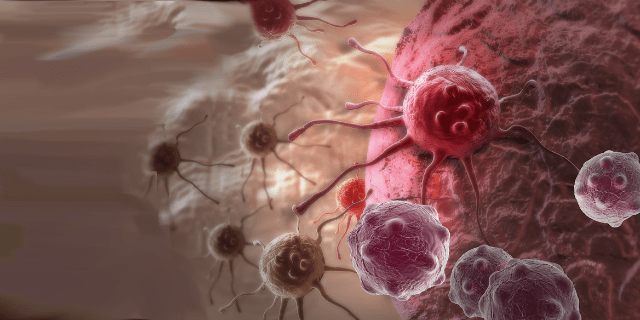Intent-to-treat analysis revealed the reduced risk of death following recurrence for the intervention arm (mind-body therapy)
Mind-Body therapy plays a potentially important role in multiple myeloma survival according to the study linked below. According to the research below, cancer patients who have been taught how to handle both the stress of the original diagnosis as well as a diagnosis of a cancer relapse live longer than untreated breast cancer patients.
Survivors of my cancer, multiple myeloma, always relapse. Chemotherapy helps only for a time. I wonder if mind-body therapy is the long-term solution.
To put it another way, I have to wonder how I could reach “end-stage” multiple myeloma, only to then reach complete remission about a year and a half later and remain in complete remission for the next 20 plus years.
Have you been diagnosed with multiple myeloma? What stage? What symptoms? Scroll down the page, post a question or comment and I will reply to you ASAP.
Thank you,
David Emerson
- Multiple Myeloma Survivor
- MM Cancer Coach
- Director PeopleBeatingCancer
Recommended Reading:
“This review focuses on the contributions of stress-related behavioral factors to cancer growth and metastasis and the biobehavioral mechanisms underlying these relationships. Behavioral factors that are important in modulation of the stress response and the pivotal role of neuroendocrine regulation in the downstream alteration of physiologic pathways relevant to cancer control, including the cellular immune response, inflammation, and tumor angiogenesis, invasion, and cell signaling pathways are described.
Consequences for cancer progression and metastasis, as well as quality of life, are delineated. Behavioral and pharmacologic interventions with the potential to alter these biobehavioral pathways for patients with cancer are discussed.”
PURPOSE: A clinical trial was designed to test the hypothesis that a psychological intervention could reduce the risk of cancer recurrence. Newly diagnosed regional breast cancer patients (n = 227) were randomized to the intervention-with-assessment or the assessment-only arm. The intervention had positive psychological, social, immune, and health benefits, and after a median of 11 years, the intervention arm was found to have reduced the risk of recurrence (hazard ratio, 0.55; P = 0.034). In follow-up, we hypothesized that the intervention arm might also show longer survival after recurrence. If observed, we then would examine potential biobehavioral mechanisms.
EXPERIMENTAL DESIGN: All patients were followed; 62 recurred. Survival analyses included all 62. Upon recurrence diagnosis, those available for further biobehavioral study were accrued (n = 41, 23 intervention and 18 assessment). For those 41, psychological, social, adherence, health, and immune (natural killer cell cytotoxicity, T-cell proliferation) data were collected at recurrence diagnosis and 4, 8, and 12 months later.
RESULTS: Intent-to-treat analysis revealed the reduced risk of death following recurrence for the intervention arm (hazard ratio, 0.41; P = 0.014). Mixed-effects follow-up analyses with biobehavioral data showed that all patients responded with significant psychological distress at recurrence diagnosis, but thereafter only the intervention arm improved (P values < 0.023). Immune indices were significantly higher for the intervention arm at 12 months (P values < 0.017).
CONCLUSIONS: Hazards analyses augment previous findings in showing improved survival for the intervention arm after recurrence. Follow-up analyses showing biobehavioral advantages for the intervention arm contribute to our understanding of how improved survival was achieved.




